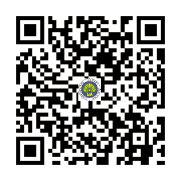Penerapan pembelajaran contekstual teaching and learning (CTL) berbantuan hands on activity untuk memahamkan siswa kelas VII-D SMPN 16 Malang pada materi perbandingan
DOI:
https://doi.org/10.17977/um067v1i12p989–1001Keywords:
hands on, understanding, contextual teaching and learning approachAbstract
The purpose of this research is revising the way of teaching for making student understand about mathematical ratio through Contextual Teaching and Learning by the use of Hands on Activity. The type of this research is a classroom action research with two cycles, the first cycle consists of four meetings and two meetings of the second cycle. Research’s subject is all students class VII-D SMPN 16 Malang, as many as 37 students, consist of 17 men and 20 women. The research activities comprise of learning, class discussions, presentations, and final test.. The data were collected from the result of cyclic final test, the assignment result of students on answering cyclic final test, the result observation about teacher and students activities, interview and field notes. The result indicate that cycle I learning achievement is 80 percent and there are 12 students who made mistakes on the material concept of find a quantity if ratio is known. In the second cycle the percentage of learning achievement is 89,18 percent of the number of students in the classroom and there are 13,88 percent of students still do not understand the material find quantity if ratio is known. Based on these results it can be concluded that the application of a Contextual Teaching and Learning (CTL) approach assisted by hands on activity can make students in grade VII-D SMPN 16 Malang understanding about topics of ratio.
References
Arikunto, S, dkk. (2014). Penelitian tindakan kelas. Jakarta: Bumi Askara.
Bogan, dkk. (2010) . Using manipulatives to teach elementary mathematics. Journal of Instructional Pedagogies.
Bolden,D.S, dkk. (2010). Pre-service primary teachers’ conceptions of creativity in mathematics. Educ Stud Math Vol 73:143–157.
Depdiknas. (2002). Kurikulum berbasis kompetensi. Jakarta: Pusat Kurikulum Banglitbang Depdiknas
Haury, L.D.RP. (1994). Perspective of hands on science teaching. Columbus: The ERIC Clearinghouse for science, Mthematics, and Environmental Education. http://www.ncrl.org/sdrs/areas/issues/content/cntareas/science/eric/eric-2.htm. [19 Maret 2015]
Hilton, G, dkk. (2013). Propotional reasoning and the visual impaired. National Council of Teachers of Mathematics Vol 18:286-291.
Hudson & Whisler. (2010). Contextual teaching and learning for practitioners. Systemics, cybernetics and informatics. Volume 6 - Number 4.
Moleong, L. J. (2013). Metode penelitian kualitatif, Bandung: Remaja Rosdakarya.
Nasional, K. P. (2010). Universitas Negeri Malang. Pedoman penulisan karya ilmiah. Edisi ke lima.
Patmawati, D, dkk. (2013). Pembelajaran segitiga dengan pendekatan kontekstual berbasis karakter di kelas VII SMP Negeri 3 Banda Aceh Tahun Pelajaran 2012/2013. Jurnal Pendidikan Matematika PARADIKMA, Vol 6 Nomor 2, hal 120-129.
Rusman. (2013). Model-model pembelajaran. Jakarta : Rajawali
Sardiman. (2001). Interaksi & motivasi belajar mengajar. Jakarta: RajaGrafindo Persada
Shriki, A. (2010). Working like real mathematicians: Developing prospective teachers’ awareness of mathematical creativity through generating new concepts. Educational Studies in Mathematics, 73(2), 159-179.
Smith, B. P. (2010). Instructional strategies in family and consumer sciences: implementing the contextual teaching and learning pedagogical model. Journal of Family & Consumer Sciences Education, 28(1).
Sudaryono. (2012). Dasar-dasar evaluasi pembelajaran. Yogyakarta: Graha Ilmu
Suherman, E., dkk, (2001). Strategi pembelajaran matematika kontemporer. Bandung: JICA. Universitas Pendidikan Indonesia.
Tambelu, J.V.A. (2013). Development of mathematical learning based contextual model in south minahasa regency. Journal of Education and Practice. Vol.4, No.15, 2013
Taniredja, T, dkk. (2013). Model-model pembelajaran inovatif dan efektif. Bandung: Alfabeta
Widyastono, H. (2015). Pengembangan kurikulum di era otonomi daerah. Jakarta: Sinar Grafika Offset










1.png)
4.png)





